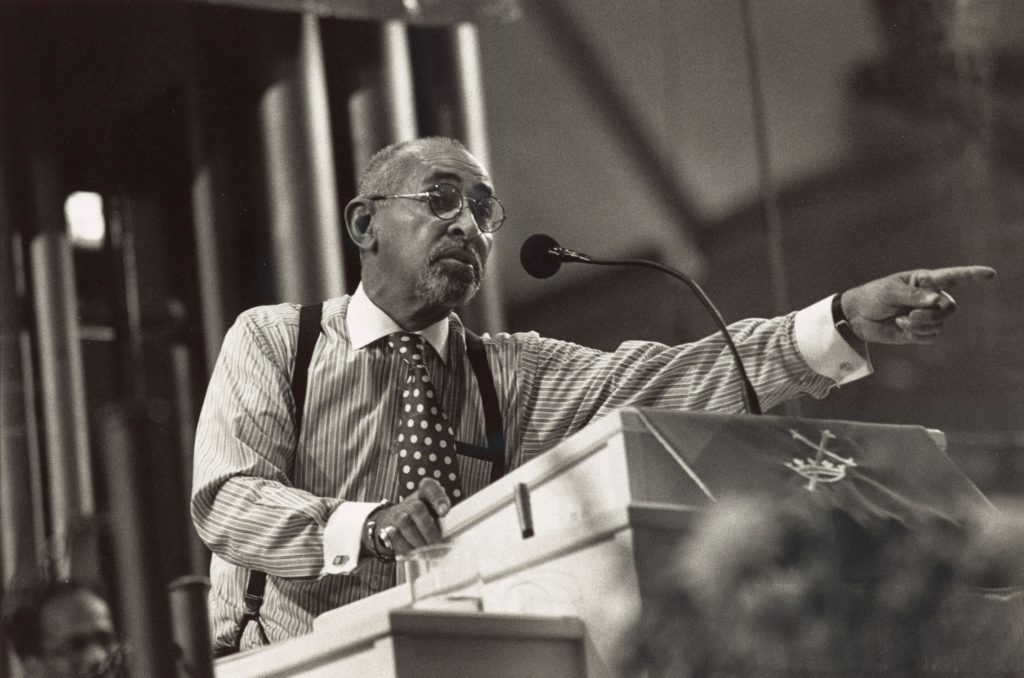(Note: This post was authored by Taylor McNeilly, Processing & Reference Archivist.) Today, August 16th, 2019, would have been Dr. Wyatt Tee Walker’s 90th birthday. It seems an appropriate moment to pause in our work and reflect on Dr. Walker’s life and legacy.
How do we honor the life of Dr. Walker? How are great men generally honored? These are questions I think of whenever I am working with the collection of such a momentous figure. Dr. Walker has had a long lasting impact on America and the world. His work with SCLC deeply affected the political and cultural life of this country, and his continued civil rights work affected the world at large. His work as a Baptist minister impacted not only those communities he served but the many places he traveled to in his ministry. His work on gospel music and the roots of American musical traditions stemming from the music of enslaved peoples has changed the way we think about our music, its history, and its place in our culture and worship.
How, then, can we honor such an important life and its deep legacy? Dr. Walker was certainly honored during his life; the Dr. and Mrs. Wyatt Tee Walker Collection includes hundreds of awards, citations, and other official forms of recognition highlighting the work he did. Maintaining this collection and making it accessible for future generations to learn and continue his legacy is perhaps the most direct way for the University of Richmond to honor that life, preserving as much of who he was and what he did as possible.
For historians, scholars, and other researchers looking at American history, religious life, music, international civil rights, or a thousand other topics Dr. Walker touched on in his life, using the collection and writing about Dr. Walker is a wonderful way to keep his memory alive. Students, community members, and those with an interest in his life can come learn about his life and honor him by remembering his life and his work. In these ways, many great men are remembered. And in these ways, we should always remember Dr. Wyatt Tee Walker.
But these actions are in some way passive. While they remember the man, they do not apply his teachings or continue his legacy. Throughout his life, Dr. Walker stood up for what he believed in, often risking serious injury or death to fight for what he believed was right. While the Rev. Dr. Martin Luther King, Jr. swayed Dr. Walker to his approach of nonviolent, direct action, Dr. Walker never stepped down. Even in his oral history recorded less than three years before his death, Dr. Walker passionately spoke on contemporary topics, wielding a keen mind and impressive insight. These are his true legacy: the ability to discern what is right and to defend it at all costs.
I believe that the greatest way to honor Dr. Walker is to continue his legacy. Rather than just reading about the man, remembering him in literature, and memorializing his impact on America and the world, we should strive to follow in his footsteps and continue that impact. Do not let the work of Dr. Walker pass into history, but rather keep it alive in the present and moving forward into the future. Remember the man, hold him in your heart, and do as he did: stand up for what you believe, fight for it with everything you have, and never stop trying to change the world.

